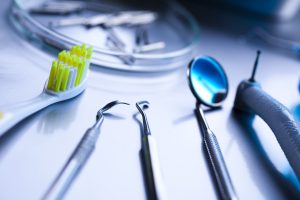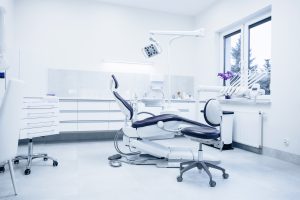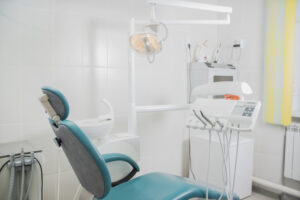By: Vincent J. Nardone, Esq., LL. M.
In Nardone Limited’s prior newsletter, we discussed the statute of limitations on dental malpractice in Ohio, please view that article here. We are now going to discuss the accepted standard of care that must be met in providing dental care in Ohio to avoid, or at least minimize, a malpractice determination. In a later article, we will then discuss how the Ohio State Dental Board (the “Board”) establishes that a dentist practicing dentistry in Ohio has violated that standard of care and how a dentist may refute the Board’s position that a dentist’s conduct fell below the applicable standard of care.
Dental Practice Act Background
Pursuant to ORC § 4715.03 the Board is vested with the power to administer and enforce the provisions of ORC Chapter 4715, which addresses the licensing of dentists and hygienists. Specifically, “the board shall investigate evidence which appears to show that any person has violated any provision of this chapter. Any person may report to the board under oath any information such person may have appearing to show a violation of any provision of this chapter. If after the investigation the board determines that there are reasonable grounds to believe that a violation of this chapter has occurred, the board shall conduct disciplinary proceedings pursuant to Chapter 119 of the Revised Code.” ORC § 4715.03(D).
Further, the Board’s statutory bases for instituting disciplinary proceedings against a dentist is set forth under ORC § 4715.30(A). Under ORC § 4715.30(A)(7), the Board can discipline a dentist for providing dental care that departs from the accepted standards for the profession even if no patient is injured. Under ORC § 4715.30(A)(9), the Board can discipline a dentist for a violation of any provision of Chapter 4715 or any rule adopted thereunder.
The Accepted Standard of Care in Ohio
The Board’s power to administer and enforce the provisions of ORC Chapter 4715 is premised on its interest in regulating commercial transactions, protecting consumers, and maintaining standards among members of the licensed professions. A consequence of this interest is that the Board is empowered to exercise licensing and supervisory powers that include the power to discipline or exclude those members of the profession who are deemed unqualified. On the other hand, it is well established that a person who has secured a license to practice medicine or dentistry has a property right in that license of which he cannot be deprived without due process of law. See Haj-Hamed v. State Med. Bd., Franklin App. No. 06AP-351,2007 Ohio 2521, at P53 (it was held that a doctor has a protected property interest in his professional license.).
Disciplinary proceedings frequently involve allegations of conduct constituting a departure from accepted professional standards in the rendition of professional services. The nature of the administrative bodies, such as the Board, and of the disciplinary process has given rise to a number of issues relating to the use of expert testimony in disciplinary proceedings. It is generally accepted that expert evidence is admissible in disciplinary proceedings if it is demonstrated to be relevant to the issues in the proceedings. The courts that have considered the issue have reached conflicting views on whether expert testimony is required in disciplinary proceedings for the purpose of establishing the standard of care to which the licensee whose conduct is in question is to be held and of establishing a breach of that standard of care.
What is the Standard of Care?
The accepted standard of care for providing dental care in Ohio is not defined by the Board, statute, regulation, case law, or agency guidelines. The Dental Practice Act, which is found at Ohio Revised Code (“ORC”) Chapter 4715, provides the Board the discretion to make determinations as to what is and is not within the scope of practice for dentists and dental hygienists, and what acts or omissions qualify as not meeting the accepted standards of care for the profession. The standard of care is established through expert testimony, lay witness testimony, or other relevant, probative evidence, presented by both the Board and a doctor during a disciplinary hearing. When presented with conflicting evidence regarding the standard of care, the hearing examiner and the Board, as the triers of fact, have the discretion to make credibility determinations regarding the sufficiency of the evidence presented at the hearing. A trial court must give deference to the Board’s findings with respect to conflicting evidence and may not substitute its own judgment for the credibility determinations made by the Board.
In sum, the standard of care is set and determined by you. That is, the dentists located within your community and within your specialty, if applicable. When we are looking at these issues, we ask ourselves: what would an ordinary and prudent dentist, under like circumstances, have done or advised?
 Vince Nardone Discusses Employment Contracts with Ohio State Dental Students
Vince Nardone Discusses Employment Contracts with Ohio State Dental Students  Navigating the 2024 Landscape: Strategies and Considerations for Dental Support Organizations (DSOs)
Navigating the 2024 Landscape: Strategies and Considerations for Dental Support Organizations (DSOs)  Sellers of Dental Practices to DSOs need to have a Buyer’s Mentality Requiring Selectivity and a Well-Thought-Out, Decision-Making Process
Sellers of Dental Practices to DSOs need to have a Buyer’s Mentality Requiring Selectivity and a Well-Thought-Out, Decision-Making Process  Increasing Profitability by Minimizing Disruptions within Your Dental Practice
Increasing Profitability by Minimizing Disruptions within Your Dental Practice  As a Dentist, What Are My Obligations Related to Out-of-State Patients and Potential Prescription Drug Abuse?
As a Dentist, What Are My Obligations Related to Out-of-State Patients and Potential Prescription Drug Abuse?